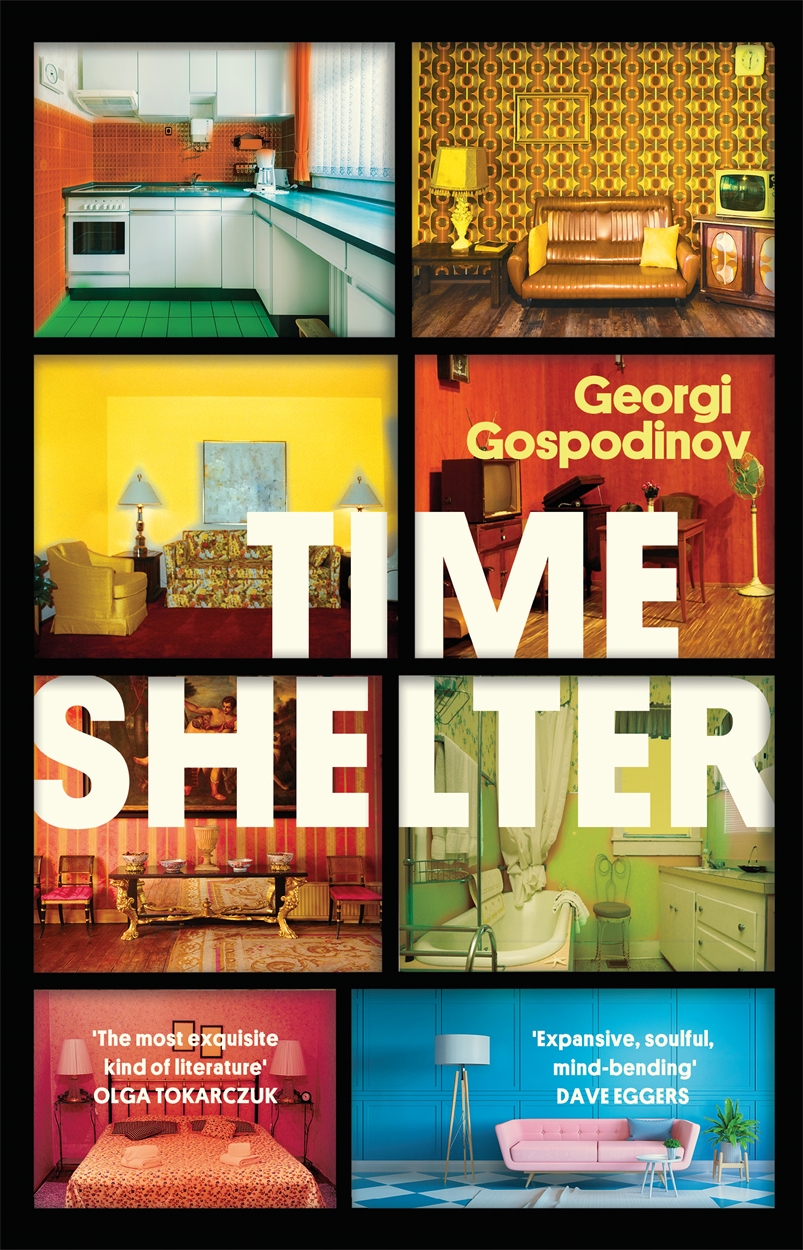Building Novels
‘Time Shelter’ Is a Sassy Satire That Savors Europe’s Long Dusks
Georgi Gospodinov at Southbank Centre ahead of The International Booker Prize 2023 ceremony on May 23, 2023. (Photo: The Book Prizes/Flickr)
Madeline Beach Carey's latest installment in her “Building Novels” series, which focuses on works of fiction where buildings and architecture play integral roles, delves into Time Shelter, the Booker Prize-winning novel by Georgi Gospodinov in which the different floors of a Zurich clinic enable Alzheimer’s sufferers to time travel to distant decades and “unlock” different pasts.
Time Shelter, Georgi Gospodinov’s clever, daring, playful, yet haunting novel, recently won the 2023 International Booker Prize. The novel is very much about “world building” and the ways in which our longing, both individual and collective, for the past affects how we try to shape the present and design the future. The book doesn’t give us many answers or a tight plot, but rather meanders through the last century and the many “Europes” lived in and left behind.
Angela Rodel’s translation into English felt a tad stiff at times, and this reader wondered if the original Bulgarian might be a bit richer and even funnier. Despite this tiny blunder Time Shelter is an enjoyable read, full of beautiful descriptions of objects and place and poetic musings about the twentieth century — its charms and then its shattering.
A nameless narrator, a sort of stand-in for the author himself, introduces us to the star of this show: Gaustine, a psychiatrist who studies dementia. Gaustine, it seems, has opened a radical “clinic of the past” in clean, pristine Zurich. A neutral, spotless place. In the clinic each floor reproduces a decade in precise detail. Patients, once suffering, lost without clearly defined memories, are comforted. They can travel back in time, taking refuge in the familiar:
Weren’t you heading to New York in 1939 last time I saw you? I said as casually as I could. When did you get back?
After the war, he replied, unruffled.
So what are you going to do now?
Rooms from different times. As a start.
Rooms of the past? It sounds like a title.
Yes, rooms of the past. Or a clinic of the past. Or a city…Are you in?
Our narrator, a literary flaneur more than an architect or doctor, is charged with collecting discarded objects of the past: furniture, buttons, the way a room smelled, a certain ray of afternoon light:
It was the perfect job for me. When it comes down to it, that’s what I’ve always done — I’ve roamed like a flaneur through the arcades of the past. […] It allowed me to travel, to wander around ostensibly aimlessly, to write down even the most trivial of things — what more could I want? To gather up the bullet casings from 1942 or to see what is left of that dilapidated yet still important 1968. Past eras are volatile, they evaporate with ease like an open bottle of perfume, but if you have the nose for it, you can always catch a whiff of their fragrance. […] Over the years, I’ve realized it tends to hide above all in two places — in afternoons (in the way light falls) and in scents. That’s where I laid my traps.
- Houses by Borislav Pekić
- Bold Ventures: Thirteen Tales of Architectural Tragedy by Charlotte Van den Broeck
- The Poet & The Architect by Christine Stewart-Nuñez
- The Book of Errors by Annie Coggan
- Love Notes from a German Building Site by Adrian Duncan
So perfect is this project, this model of modern happiness and European well-being, that healthy people — memories still very much intact — seek refuge in the safety and comfort of the clinic. Here the novel winks at Brexit and other populist tides in Europe and describes a continent in which nation-states want to copy the clinic, holding referendums in order to choose which “past” could determine a people’s future.
The novel read at times as sort of high concept, too meta for this reader, but it is actually profoundly moving. Gospodinov takes on a huge canvas and very painful histories — the many specters of twentieth-century totalitarianism haunt the characters — and yet his gentle, graceful attention to detail makes the book aesthetically brilliant: full of gentle afternoons and buildings with dreamy “apricot facades.” Certain sentences provide so much detail, a sort of personal tapestry, that they could begin entire other novels, fictional worlds, personal bunkers against the passage of time:
The wallpaper, how could I forget, the wallpaper was a true revelation. The pattern here — with a castle and green vines — was very similar to what had hung in my room, pale green diamonds with entwining vegetation, except instead of a castle there had been a cabin tucked deep in the woods, with a little lake in front of it. Hundreds of copies of green cabins with green lakes.
Georgi Gospodinov, born in Bulgaria in 1968, has written a delicate exploration of the past in order to ask extraordinarily pertinent questions about Europe today, a tiny continent often content with preserving past glories, and in many ways unable to confront the complexities of the present moment: climate change, migration, vast, fast-paced change. As far-right parties rise in many of Europe’s “liberal” democracies and wars rage along its closest peripheries, Time Shelter reminds readers that it’s quite impossible to build shelters out of only memory — some sort of reckoning, a new way of constructing the collective, is required for future survival. The author doesn’t provide lessons or easy fixes, only many mirrors, certain refractions of light, in the long dusk of Europe’s last century.

Time Shelter
Georgi Gospodinov
Translated by Angela Rodel
304 Seiten
Hardcover
ISBN 9781474623025
Weidenfeld & Nicolson
Dieses Buch kaufen
